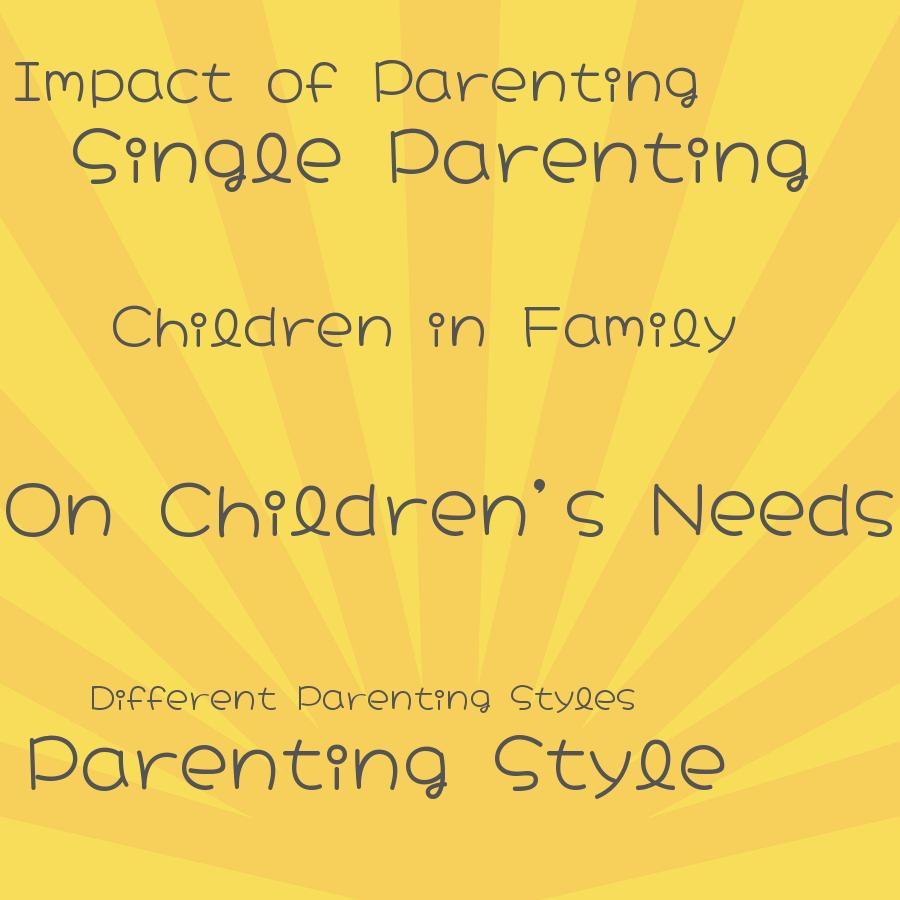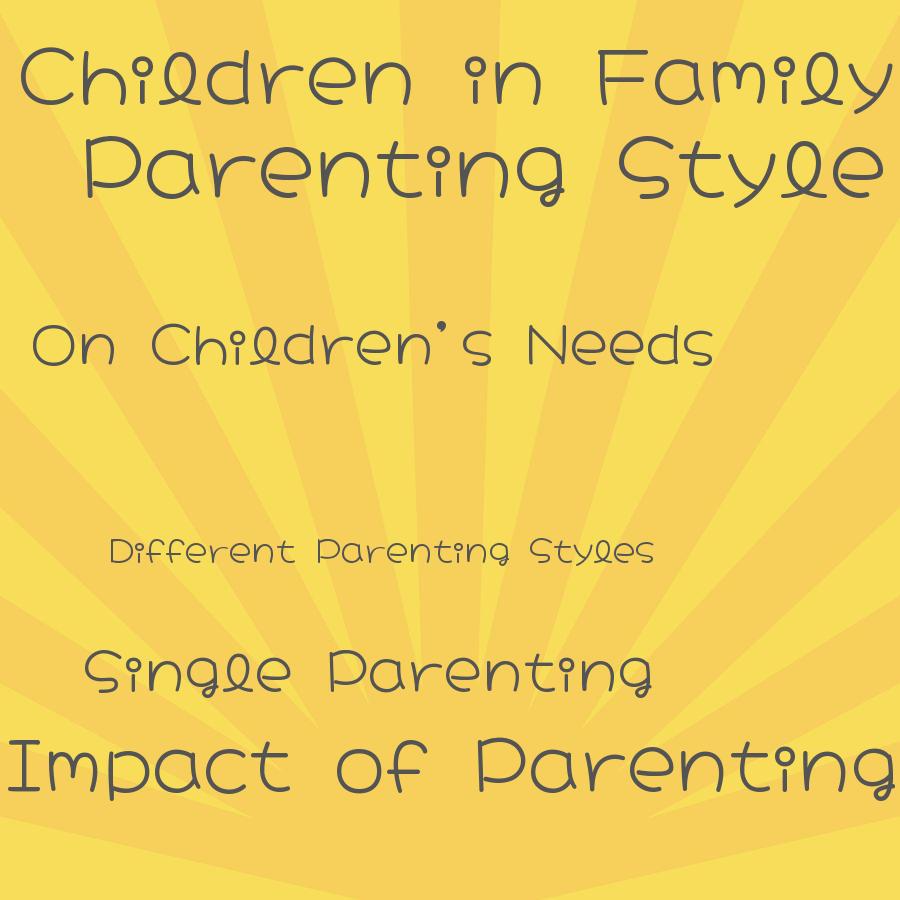No, a single parenting style cannot work for all children in a family as each child has unique needs and personalities.
As a child, I remember my parents having different approaches to parenting. My mom was strict and disciplined, while my dad was more laid-back and lenient.
At times, their differing styles caused confusion for us kids. We never knew which parent to turn to for guidance or support.
Now as an adult and a parent myself, I often wonder if there is a one-size-fits-all approach to parenting that can work for all children in a family. Can we use the same techniques on our firstborn as we do on our youngest? Is it possible to raise children with different personalities using the same style?
These are questions that have been debated by parents and experts alike for decades. In this blog post, we’ll explore whether or not it’s possible for a single parenting style to work effectively across all children in a family.
Let’s dive in!
Here You Will Learn:
Understanding Different Parenting Styles


To understand whether a single parenting style can work for all children in a family, we must first explore the different types of parenting styles. There are four main categories: authoritative, authoritarian, permissive and uninvolved.
As I mentioned earlier, my parents had different approaches to raising us. My mom was an authoritarian parent who believed in strict rules and discipline.
She expected obedience from her children without question or explanation. On the other hand, my dad was more permissive and allowed us to make our own decisions with little guidance.
These two styles were vastly different from each other but they both had their pros and cons when it came to raising me and my siblings. While my mom’s approach instilled discipline in us at an early age which helped shape our character as adults; it also made some of us feel like we couldn’t express ourselves freely around her because she would always be quick to judge or punish.
My dad’s approach gave us freedom but sometimes left room for confusion on what is right or wrong since there were no clear boundaries set by him. In conclusion understanding these various parenting styles will help you determine which one works best for your child(ren) based on their personality traits rather than trying out a one-size-fits-all method that may not work effectively across all children within your family dynamic
Impact of Parenting Style On Children
The impact of parenting style on children is a topic that has been studied extensively by psychologists and child development experts. Research shows that the way parents interact with their children can have a significant effect on their emotional, social, and cognitive development.
As I mentioned earlier, my parents had different approaches to parenting. My mom’s strictness often made me feel anxious and stressed out as a child.
On the other hand, my dad’s leniency sometimes left me feeling unsupported or neglected.
It wasn’t until I became an adult that I realized how much these experiences had shaped who I am today. While both of my parents loved us equally, their differing styles affected each of us in unique ways.
This brings up an important question: Can one single parenting style work for all children in a family? The answer is not straightforward because every child is different – they have varying personalities, temperaments and needs which require individualized attention from caregivers.
Challenges of Single Parenting
Single parenting is a challenging task, and it becomes even more difficult when you have to raise multiple children with different personalities. As a single parent, you are solely responsible for your children’s upbringing and well-being.
You have to juggle work, household chores, finances while also providing emotional support to your kids. Single parents often face challenges in maintaining consistency in their parenting style across all their children.
It can be tough to balance the needs of each child while still adhering to one particular style of discipline or communication. For instance, my friend Sarah is a single mother who has two sons – one who is introverted and sensitive while the other is outgoing and adventurous.
She finds it hard sometimes as she tries her best not only to cater for both boys’ unique needs but also maintain consistency in her approach towards them. Despite these challenges faced by single parents raising multiple kids with differing personalities simultaneously; there are ways they can overcome this hurdle effectively without compromising on any child’s development or growth potential.
Importance of Tailoring Parenting to Each Child’s Needs
As I grew older and became a parent myself, I realized that each child is unique and requires different approaches to parenting. What works for one child may not work for another.
It’s important to tailor our parenting style to meet the individual needs of each child. For example, my eldest daughter responds well to structure and routine while my youngest thrives on spontaneity and flexibility.
If I were to use the same strict approach with both of them, it would lead to frustration for everyone involved. It’s also essential that we take into account our children’s personalities when deciding how best to parent them.
Some children are more sensitive than others; some require more attention or praise while others need space or independence. Tailoring our parenting style based on each child’s personality traits can help us build stronger relationships with them as individuals rather than treating all kids in a family as if they’re identical beings who should be treated equally at all times regardless of their differences in character traits or preferences.
Strategies for Effective Single-Parent Discipline
As a parent, it’s natural to want to find a parenting style that works for all of your children. However, with each child having their own unique personality and needs, finding the right approach can be challenging.
One area where this challenge is particularly evident is in discipline.
Discipline is an essential part of parenting and helps children learn boundaries and consequences for their actions. But what happens when one child responds well to strict rules while another requires more flexibility? Is there a way to discipline effectively without resorting to different approaches for each child?
The answer lies in finding strategies that work across the board while still allowing room for individual differences. Here are some effective single-parent discipline strategies:
1) Consistency: Regardless of your child’s age or personality type, consistency in enforcing rules and consequences is key.
2) Positive reinforcement: Instead of focusing solely on punishment when things go wrong, make sure you also praise good behavior as often as possible.
3) Communication: Talk openly with your children about expectations and why certain behaviors are not acceptable.
4) Flexibility within limits: While consistency is important, it’s also crucial not to be too rigid with rules if they’re causing undue stress or conflict within the family dynamic.
By employing these strategies consistently over time – even if you have multiple kids who respond differently – you’ll create an environment where everyone knows what’s expected from them without feeling like they’re being treated unfairly based on their personalities or preferences.